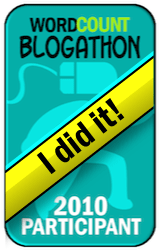Now that you understand the importance of letting go and can accept that there will be setbacks, what's next? What I've learned throughout my own Recovery is that I am going to need coping skills.
Coping skills are the tools we have within and without ourselves that help hold us up when we feel weak. Like a building has an iron frame and our body has a skeleton of bones, our mind also needs something to shore it up. We begin learning coping skills as children. When we get into trouble, we might tell a little white lie to avoid the consequence, or say something funny to divert attention from the circumstance. We learn where the best hiding places are, or where to go when we need time alone. We engage in escapism--inside the pages of a book, perhaps. Or we create an imaginary friend. We look for ways to provide the security Maslow (hierarchy of needs) says we naturally seek as human beings.
As we get older, we continue to use some of these early behaviors. We also adopt new ones. Maybe we begin journaling. Maybe we take up running. Maybe we gossip with our friends. Maybe we yell, kick or scream. Maybe we continue to crack jokes. Maybe we shut down. Coping skills have a lot to do with our individual personalities.
Do you know what your coping skills are? What are some of the tools you've adopted over the years that help you deal with change or the difficult times in life? Could you use a few more to place in your toolbox? Here's a list for you to review. Read through it and see what you currently use, or what you could begin making use of now. Maybe you aren't even aware you had coping skills or tools that would benefit you in times of need.
If there's something missing from this list that you have found useful in your own life, please add it as a comment below:
_Engage in a morning ritual that includes breathing exercises and meditation.
_Make a plan of action if you feel stuck. A simple written outline can do the trick.
_Watch a sunrise or sunset.
_Hike a mountain trail and spend time at the top taking in the view.
_Go for a bike ride, either alone or with a friend.
_Plan a week's worth of healthy meals.
_Schedule time in your daily routine for exercise, just 20 minutes for starters.
_Drink more water to flush out toxins.
_Jog in place to release stress, or jump rope.
_Begin a grateful journal.
_Journal what you eat on a daily basis, if you think food is an issue with you.
_Take an art class.
_Subscribe to a fun-for-you magazine and read it the minute it arrives in your mailbox.
_Read a chick lit or sci-fi novel, just for fun, from cover to cover.
_Take yourself on a date--no kids, no spouse, no partner, no dog, just you.
_Scream as loud as you can.
_Go wash the car.
_Play a musical instrument, if you have that talent.
_Sing a song in the shower, as loud as you can.
_Take an improvisation or acting class.
_Organize the shelves in your kitchen or the closet.
_Alphabetize your books.
_Order in and watch your favorite movie.
_Color in a coloring book.
_Doodle on a page.
_Go for a brisk walk, without the dog.
_Mow the lawn or trim the bushes.
_Clean the windows.
_Take a long, hot bath.
_Sit in the jacuzzi or go for a swim.
_Find a partner and play catch with a ball, Frisbee or other similar object.
_Go dancing.
_Light a fire in the fireplace and drink hot chocolate.
_Make a pot of loose leaf tea and drink it in your best china cup and saucer.
_Visit the nearest coffee house and people watch.
_Splurge on yourself at your favorite restaurant or clothing boutique.
_Visit your Farmer's Market and buy fresh and local.
_Call a friend or therapist.
_Take time to talk to your spouse or partner.
_Plan a vacation or a long weekend getaway.
If you'll notice, some of the suggestions on this list sound like work, while others sound like fun. The point is that they can help you get your mind off your troubles if that that's all you need at the moment. Or they can help you relax. Or they can help you solve the problem. Taking time for yourself, to be alone with your thoughts, to think through the challenges of the day, can be all you need to find the solution, to feel better, to move foward. Coping skills are not meant to be time wasters. They are meant to give you time--the time you need to adjust to new feelings, new surroundings, new people, new experiences, new whatevers.
Coping skills are learned behaviors, sometimes good, sometimes not so good. So we can all stand to learn new ones.
Monday, January 4, 2010
Subscribe to:
Post Comments (Atom)












8 comments:
I love your list -- and can add to it with:
-- Listen to Fun Music - as you do other things.
Music has been an important part of my coping with losses in my life. It makes me feel free of the loss.
Looking forward to following more of your blogs!
Bonnie Mattick
www.YourBusinessDetective.com
Thanks, Bonnie. Recovery is working so well that I'm a day ahead of myself. But at least I'm free to work on other things tomorrow. Glad you're participating in whatever way you can. Hope work is going well.
Thanks Jackie - you are a big help to me - my second book is on recovery from trauma and coping skills and PTS survival and thriving - you are right on here - thanks for ideas for my research too!
That's nice to know I could help you with your book, Patricia. It's an important topic and more widespread than we know, right?
Jackie you are talking about somethhing which is so important. When I work with clients I am usually amazed that when they are going through a difficult time and I ask them about their copying skills so many people look at me like a dear staring into headlights. Some of my work is to help them find out what their skills are. You list is wonderful
Great list, Jackie! You've hit upon all of the things I do too!
Eileen, it's true that people aren't familiar with coping skills, or even know they have them at their disposal. I've seen that same deer in the headlights look you have when I've spoken about them. I just heard about a treatment facility in Phoenix centered around this basic function--how to cope. It teaches coping skills. Maybe this should be a required class throughout grade school.
Kerri, I bet you have some other coping skills that you've used to adapt to your small house living environment.
Jackie, what a wonderful list you've compiled.
It's great to go through and see what we can incorporate into our 2010 intentions!
Thank you for sharing!
Suzanne Holman
Post a Comment